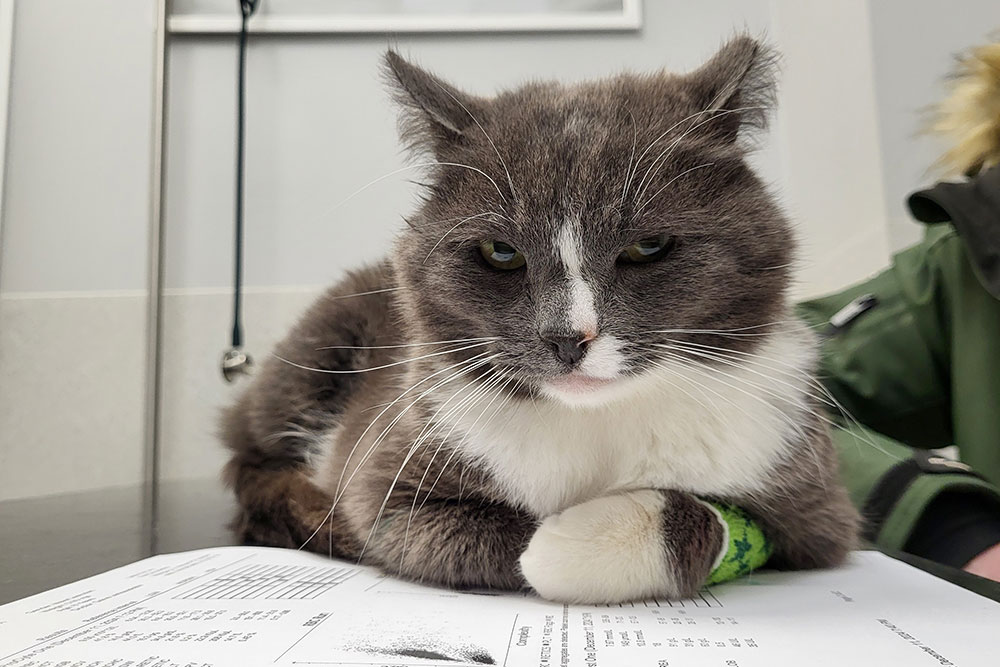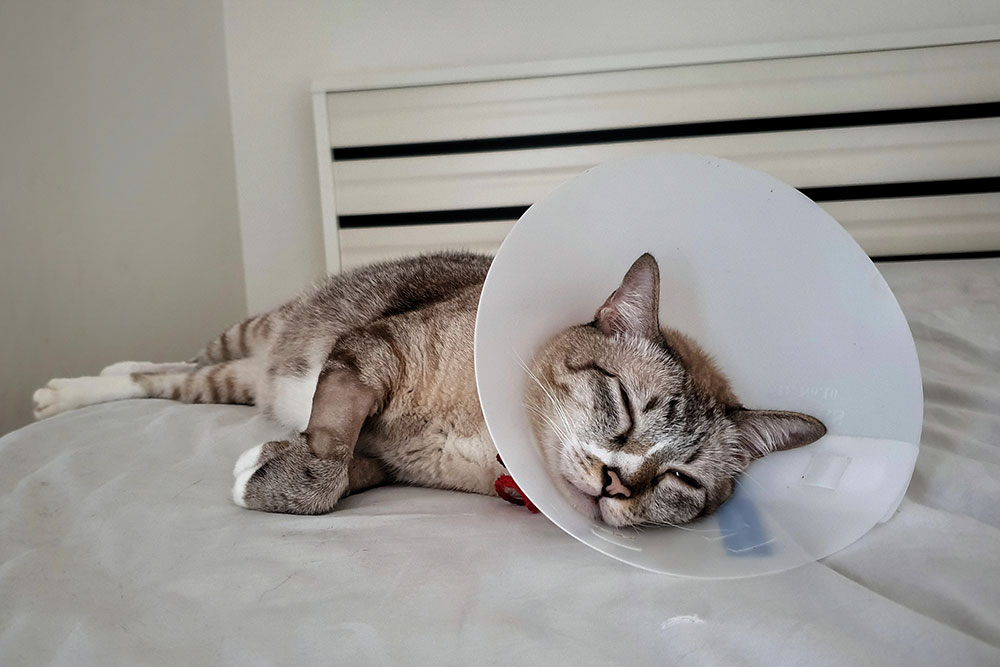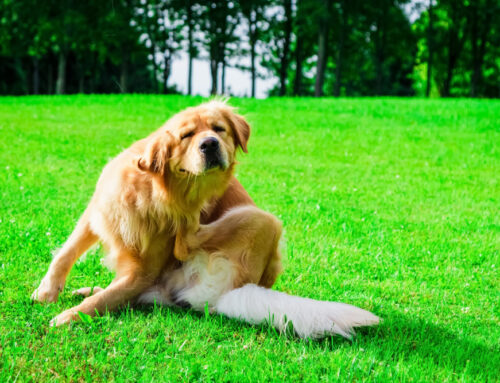When Cats Grow Older: Common Health Concerns in Senior Felines
As cats age, their quiet independence can mask serious health issues. Conditions like diabetes, kidney disease, dental disease, and thyroid imbalance often develop slowly, showing only minor behavioral changes at first. Regular veterinary exams and attentive care can uncover these problems early, making treatment more effective and prolonging comfort in the golden years.
At Oliver Animal Hospital, our comprehensive diagnostic capabilities and compassionate approach help senior cats maintain their quality of life through proactive health management and personalized treatment plans.
Recognizing Age-Related Health Challenges in Your Cat
Senior cats face unique vulnerabilities as their bodies change over time. Understanding these common conditions allows you to identify problems early and seek appropriate care before they progress.
Joint Pain and Mobility Changes
Many cat owners assume their pet is simply slowing down with age, but stiffness and reduced activity often signal arthritis in cats, which affects mobility differently than in dogs. Unlike dogs, cats rarely limp. Instead, they modify their behavior in subtle ways.
Watch for these signs:
- Hesitation before jumping onto counters or beds
- Avoiding stairs or high perches they once preferred
- Decreased grooming, particularly around the back legs and tail
- Eliminating outside the litter box due to difficulty stepping over high sides
Weight management plays a crucial role in protecting aging joints. Extra pounds increase stress on already compromised cartilage and bone. Nutritional supplements containing glucosamine, chondroitin, and omega-3 fatty acids support joint health and reduce inflammation.
Our pain management services include medications and therapeutic approaches designed to keep your senior cat comfortable and active throughout their golden years.
Understanding Chronic Kidney Disease
Chronic kidney disease affects a significant percentage of older cats and progresses gradually over months or years. The kidneys lose their ability to filter waste products efficiently, leading to toxin buildup in the bloodstream.
Early warning signs include increased water consumption, more frequent urination, unexplained weight loss, and lethargy. Some cats develop poor coat quality or decreased appetite as the disease advances.
Management focuses on slowing progression and maintaining quality of life. Therapeutic renal diets reduce the kidneys’ workload by limiting protein, phosphorus, and sodium. Many cats benefit from regular subcutaneous fluid therapy to support hydration and help flush toxins.
Because kidney disease changes over time, routine blood work and urinalysis help veterinarians adjust treatment protocols as needed. Our in-house laboratory provides rapid results, allowing us to make timely care decisions.
Thyroid Hormone Imbalances
Hyperthyroidism in cats occurs when the thyroid gland produces excessive hormones, accelerating the body’s metabolism. Affected cats often eat voraciously yet continue losing weight. Other signs include restlessness, increased vocalization, vomiting, and diarrhea.
Left untreated, hyperthyroidism damages the heart and raises blood pressure to dangerous levels. Fortunately, several effective treatment options exist. Daily oral medications control hormone production in most cats. Prescription low-iodine diets offer a medication-free alternative for some patients. Radioactive iodine therapy provides a permanent cure but requires referral to a specialty facility.
Regular monitoring of thyroid hormone levels and blood pressure ensures treatment remains effective. Our veterinary wellness care program includes comprehensive senior screenings designed to catch endocrine disorders before they cause irreversible damage.
Diabetes in Senior Cats
Feline diabetes is common in older cats and occurs when the body can’t properly use or produce insulin. The result is chronically high blood sugar that leaves cells starved for energy. Senior cats who are overweight, male, or have received steroid medications face higher risk. Warning signs include increased thirst and urination, weight loss despite a good appetite, and changes in activity or muscle tone.
Obesity is one of the biggest contributors to diabetes, and maintaining a healthy weight is key to prevention. Weight management, balanced nutrition, and regular play all help improve insulin sensitivity. Early detection through routine blood and urine testing allows for prompt treatment- often before complications occur.
Most diabetic cats respond well to daily insulin, consistent feeding schedules, and close veterinary monitoring. With proper care, many can achieve excellent control- and in some cases, remission. For senior cats, managing weight and blood sugar not only stabilizes diabetes but also supports overall comfort, mobility, and longevity.
Cognitive Function and Behavioral Shifts
Aging affects the feline brain just as it does in humans. Cognitive decline can cause disorientation, altered sleep patterns, and personality changes. Some cats become more vocal at night, while others seem confused in familiar spaces or forget where their food bowl is located.
While these changes can be distressing to witness, environmental enrichment and nutritional support can slow cognitive decline. Interactive toys, puzzle feeders, and regular play sessions keep the mind engaged. Antioxidant supplements and omega-3 fatty acids support brain health.
If you notice common cat behavior issues emerging in your senior pet, schedule an evaluation. Many behavioral changes have medical causes that respond well to treatment.
Oral Health in Aging Cats
Dental disease affects more than just the mouth. Bacteria from infected gums enter the bloodstream and damage the heart, kidneys, and liver. Senior cats are particularly vulnerable because years of plaque accumulation create painful infections and tooth decay.
Professional dental care for pets under anesthesia allows thorough cleaning below the gum line and safe extraction of diseased teeth. Many owners worry about anesthesia risk in older cats, but modern protocols and careful monitoring make dental procedures safe for most senior patients.
Between professional cleanings, home care helps maintain oral health. Dental diets designed to reduce plaque, combined with regular tooth brushing when tolerated, can slow disease progression and keep your cat comfortable. Oliver Animal Hospital provides comprehensive dental care for senior cats.
Complementary Therapies for Senior Cat Comfort
Blending conventional care with supportive therapies can greatly improve quality of life for aging cats. These gentle, non-invasive treatments ease pain, enhance mobility, and promote relaxation.
Acupuncture for Pain and Wellness
Acupuncture for pets uses fine needles at specific points to reduce inflammation, improve circulation, and trigger natural pain relief. Most cats relax during sessions, and regular treatments can ease arthritis discomfort and lessen medication needs.
Laser Therapy Benefits
Laser therapy for pets delivers focused light energy deep into tissues to reduce inflammation and speed healing. It’s painless and ideal for cats who dislike handling. Laser therapy helps with arthritis, post-surgical recovery, and wound healing, often improving mobility after only a few sessions.
Massage Techniques for Older Cats
Gentle feline massage techniques improve circulation, ease stiffness, and provide comfort. Light stroking along the spine and circular motions around the hips and shoulders can relax muscles and alert you to new areas of tenderness- strengthening both your cat’s body and your bond.
Creating a Senior-Friendly Home Environment
Simple modifications make daily life easier for aging cats. Low-sided litter boxes eliminate the need for difficult climbing. Placing food and water bowls on the main living level reduces trips up and down stairs. Because dehydration and weight loss are common in many older cat diseases, ensure high-quality nutrition and extra hydration through wet food. Ramps or pet stairs help cats reach favorite resting spots without painful jumps. Extra grooming helps to compensate for your older cat’s decrease in natural grooming habits from arthritis pain and stiffness.
Soft, supportive bedding cushions arthritic joints and provides warmth. Many senior cats appreciate heated beds during colder months. Night lights help cats with declining vision navigate safely after dark. Keeping the home layout consistent prevents confusion for cats experiencing cognitive changes.

Supporting Your Senior Cat Through Every Stage
Early detection and proactive management transform how senior cats experience their golden years. Regular veterinary examinations catch problems before they become crises, and personalized treatment plans address each cat’s unique needs.
At Oliver Animal Hospital, we understand that aging cats require patience, expertise, and compassionate care. Our same-day appointments and comprehensive diagnostic capabilities mean you never have to wait when concerns arise. Whether your cat needs routine wellness monitoring or help with navigating age-related diseases, our team provides world-class medical care focused on minimizing stress and maximizing comfort.
Request an appointment today to discuss your senior cat’s health needs, or contact us to learn more about our senior care services. Your cat’s comfort and quality of life remain our highest priorities through every stage of aging.







Leave A Comment